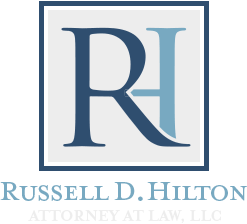Realistically, a preliminary hearing is a very informal proceeding held either at the Magistrates Court or the Municipal Court (depending on the jurisdiction) whereby the “affiant listed on the arrest warrant or the chief investigating officer” will take the witness stand and present testimony as to what evidence the state has against the defendant. See SC Code 17-23-162. Sometimes a prosecutor will appear on behalf of the state to examine law enforcement, and in other jurisdictions, only the detective or law enforcement officer will appear.
At a preliminary hearing, neither the defendant or his attorney is entitled to present evidence, but may cross-examine the witness or witnesses that may testify on behalf of the state. At the end of the hearing, the Magistrate or Municipal Court judge will decide if the case should be “bound over” for trial. The standard that the magistrate or municipal judge will apply is simply “probable cause” – not proof beyond a reasonable doubt.
More likely than not, if there is any evidence presented which indicates a crime was committed, and that the person charged was likely the one who committed the crime, the case will be bound over at the preliminary hearing. Sometimes the defense can successfully challenge a charge at the preliminary hearing if the officer fails to present testimony of all of the elements of the offense.
Defense attorneys recognize that a preliminary hearing can be a useful tool to gather information about a particular case early on in the process. Likewise, defendants should recognize that the burden of proof is so low, that dismissal at the preliminary hearing is certainly not the usual result.
Requesting a preliminary hearing
At the time of the bond hearing, defendant’s will be given the opportunity to request a preliminary hearing by signing a standard form that is available at the Magistrates Court. See 17-23-160. According to Rule 2, the hearing must be held “within 10 days following the request.” This time-frame is seldom followed.
Although a defendant has a “right” to a preliminary hearing, where a case is indicted by the grand jury, the necessity and/or “right” of the preliminary hearing is extinguished. The logic for this is that both the grand jury and the Magistrate make a determination of probable cause. Therefore, if the grand jury has already decided that probable cause exists, then there is no longer a necessity for a preliminary hearing. Because the grand jury is constitutionally mandated, it trumps the state created “right” of a preliminary hearing.
A criminal defense attorney can ensure that your right to a preliminary hearing is protected if you engage him or her very early in the process. The request for a preliminary hearing must be made at the bond hearing, or at least within 10 days after being provided notice at the bond hearing.
If you need an attorney for a criminal offense in General Sessions Court, call our office immediately to preserve your rights.


